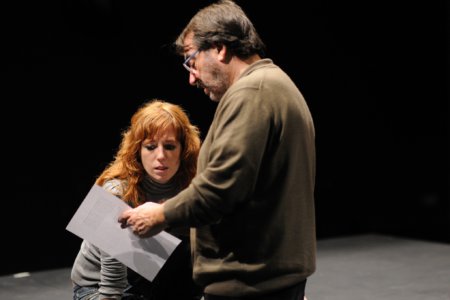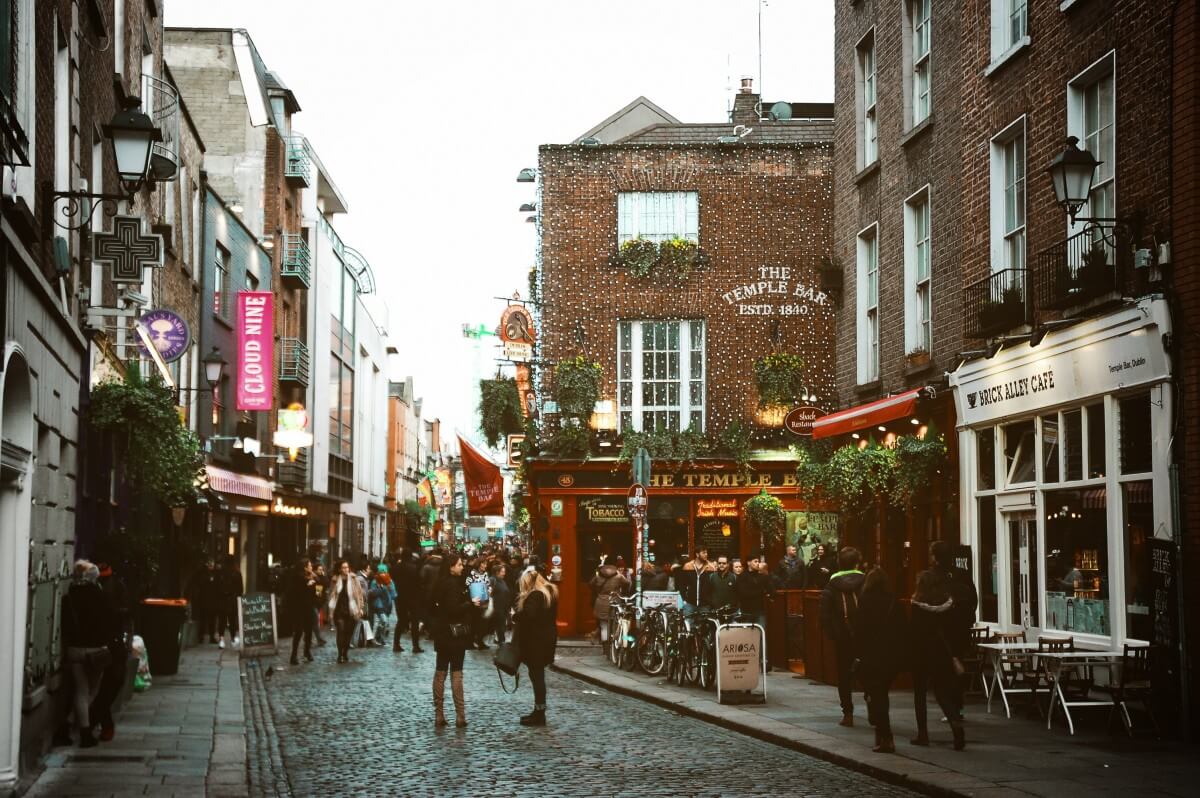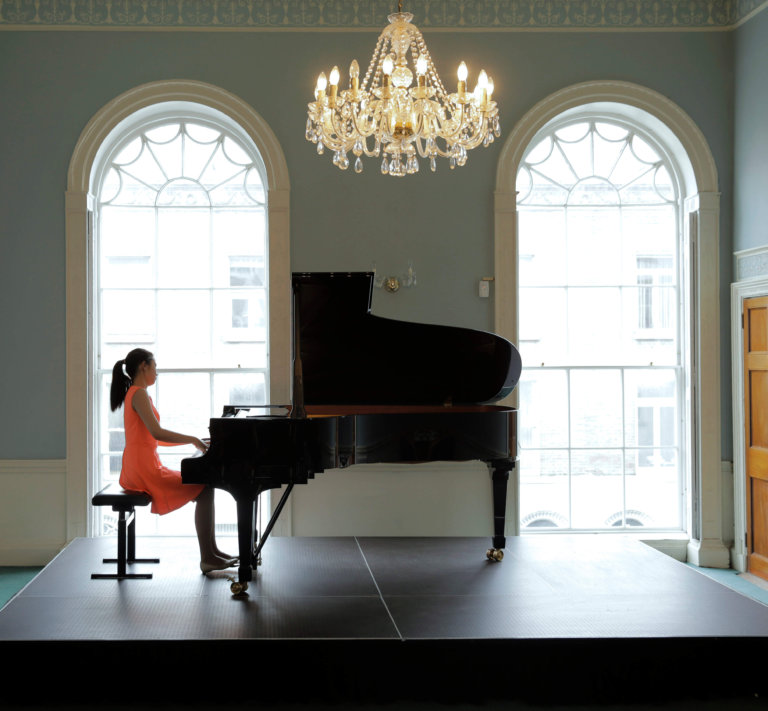
A work of art is enduring — as is the employability of artists.
Contrary to popular belief, STEM (that’s Science, Technology, Engineering, and Mathematics) jobs aren’t the only ones being created as we enter the Fourth Industrial Revolution. And as economies reopen, so are cultural venues — with Bloomberg reporting live music is roaring back in summer 2021 and everyone in the industry optimistic about how business will come back “at full speed” in the fall.
Society and businesses are eager to see the return of the performing arts — for good reason. Since Orpheus, the ancient Greek music legend’s success in subduing the ferocious three-headed dog Cerberus to get into the underworld, we have long depended on the psychological power of music.
For businesses, they are keen to tap the multi-faceted skills of graduates who study arts, humanities and social science disciplines. These include communication, collaboration, research and analysis, independence, creativity and adaptability — all of which are important to financial, legal and professional services, information and communication, and the creative industries, plus in public administration and education.
If you envision a future as a performing artist with versatile skills and multiple career opportunities, consider these universities:

Source: Royal Irish Academy of Music
Royal Irish Academy of Music
Ireland’s oldest conservatoire. Ranked in the top 50 institutions in the world for the performing arts. Innovative and award-winning graduates with successful careers in music performance, composition and pedagogy. International prize-winners and principals of professional orchestras in Ireland as teaching staff. These features define the Royal Irish Academy of Music (RIAM), an associate college of Trinity College, the University of Dublin, Ireland’s highest-ranked university.
Located in the “lively, cosmopolitan and walkable” Dublin, RIAM students have the finest of Trinity, the UK, and Europe at their doorstep. Students can avail themselves of all Trinity campus benefits including social clubs and groups. Step beyond campus and they can explore the rich culture and heritage of the island, made possible by Ireland’s relatively compact size. At this vibrant, European capital city, students get the best of both worlds — it’s big enough to feel exciting and small enough to feel homely.
What sets the RIAM apart is its individually tailored and industry-focused music education with unparalleled performance opportunities and the most one-to-one tutor hours of any music conservatory in Europe. Only a small number of students are accepted each year — this translates to greater performance opportunities and deeper relationships with heads of faculty, expert teachers, and fellow students.
In September 2022, RIAM is set to open a brand new 23 million euros world-class campus, featuring a 300-seat Recital Hall, Library and Research Hub, Opera Studio, Music Discovery and Therapy facilities, and a Sonic Arts Hub. For instrumental musicians seeking to pursue a career in music performance, check out the BMusPerf (Instrumental). Singers looking to pursue an opera career should consider the BmusPerf (Vocal). If you’re aiming to take your performance career to the next level and into the 21st century, check out these postgraduate programmes: MMusPerf (Keyboard), MMusPerf (Strings), MMusPerf (Vocal Studies), or MMusPerf (Woodwind, Brass & Percussion).
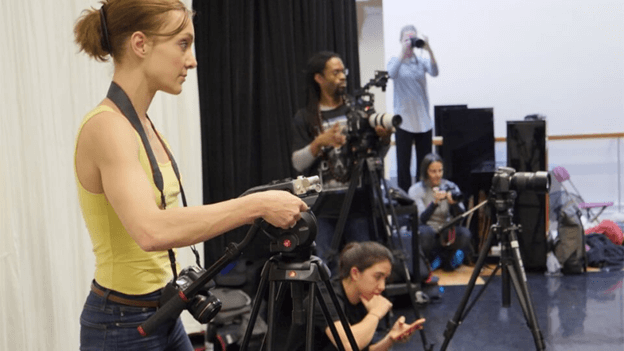
Source: London Contemporary Dance School, The Place
London Contemporary Dance School, The Place
The power of the body in motion is something the London Contemporary Dance School, The Place (LCDS) knows best. It is one of Europe’s most exciting, innovative dance spaces with a lustre that attracts artists from across the globe. Each arrives with the goal to push creative boundaries and learn the art of captivating audiences through movement.
Across undergraduate, taught postgraduate and research programmes, its goal remains the same: to offer vocational training to the highest technical and artistic standards. As well as its outstanding track record for developing new generations of choreographic talents, LCDS also has a strong reputation for artistic experimentation and innovation within new parts of the field.
Take the MA Screendance, for instance –– a course designed in response to the potential of seeing dance on screens instead of just on stages. It examines movement on film and investigates the possibilities of combining moving images within an expanded sense of choreographic practice. The programme is one of a kind, offering students a rare chance to enter a field that is niche but that is growing rapidly. Facilitating lessons are world-class lecturers and some of the industry’s finest practitioners.
LCDS is a key part of The Place, a cultural hub equipped with a 288-seat theatre, which hosts over 200 performances a year; an extensive range of enriching classes and courses; an extensive artist development programme and touring productions; participatory opportunities for adults and young people; and a suite of professional development programmes for budding artists. Join them or take a closer look here.
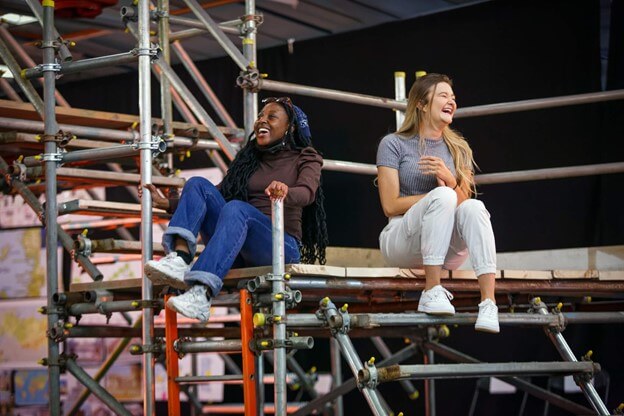
Source: Bristol Old Vic Theatre School
Bristol Old Vic Theatre School
There are many reasons why Bristol Old Vic Theatre School attracts the very best talent in students and staff. Start with the fact that its courses are nationally and internationally recognised for outstanding quality.
From professional acting to technical, production and management training, every offering adds to the school’s long history of success while continuously solidifying its reputation as one of the most well-respected conservatoire drama schools in the UK.
Collaboration keeps them at the top –– while students from around the world offer fresh perspectives, a group of industry-leading staff members provide a wealth of relevant knowledge.
“I find it immensely satisfying passing on the baton and continuing the culture of generosity of the many people who taught me,” says Head of Scenic Art, Cathy Stewart. “It’s a privilege and pleasure to nurture and teach so many talented young people and see them flourish in their career.”
Developing these professionals are a wide range of inspiring courses that cover costumes for theatre, TV and film FdA; drama directing; drama writing; professional writing; performance design; production arts (stage and/or screen); professional voice studies; scenic art; and screen acting.
London Academy of Music and Dramatic Art (LAMDA)
At this world-leading conservatoire, students receive exceptional vocational training to become actors, stage managers, technicians, directors and designers, regardless of their background or economic circumstances.
As LAMDA is also an awarding organisation, students can earn world-renowned qualifications in communication and performance. In the process, they are inspired to be the next generation of confident communicators through examinations in drama, literature and poetry.
LAMDA believes drama has the power to transform lives and wants more people to share in this experience through training, qualifications, work, productions, and facilities.
Its mission is to “seek out, train and empower exceptional dramatic artists and technicians of every generation, so they can make the most extraordinary impact across the world through their work.” Whereas its vision is to “be a diverse and engaged institution in every sense, shaping the future of the dramatic arts and creative industries, and fulfilling a vital role in the continuing artistic, cultural and economic success of the UK.”
Here, students evolve into confident, authentic communicators and discover their own voice through undergraduate programmes in professional acting as well as production and technical arts.
More advanced programmes include the MFA Professional Acting, MA Directing, and MA Classical Acting for the Professional Theatre.
Some of the Institutions featured in this article are commercial partners of Study International








